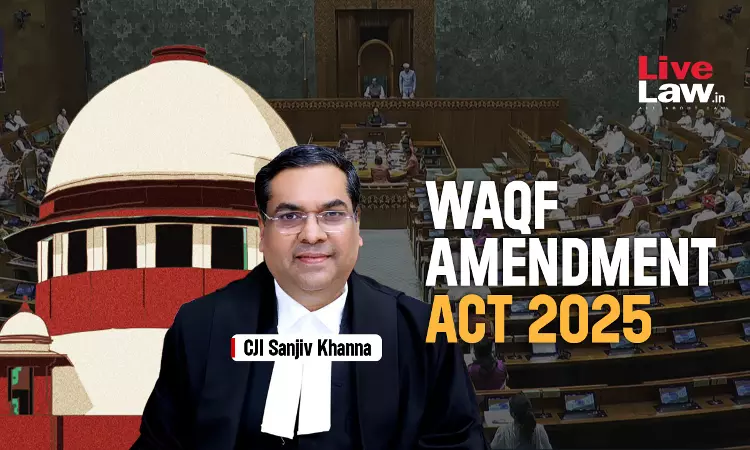'When We Sit On Bench, We Lose Our Religion' : CJI Refutes Argument That Non-Muslim Judges Can't Hear Waqf Amendment Act Challenge
Gursimran Kaur Bakshi
16 April 2025 6:42 PM IST

"We are absolutely secular. For us, one side or the other side is the same," CJI said.
Next Story


